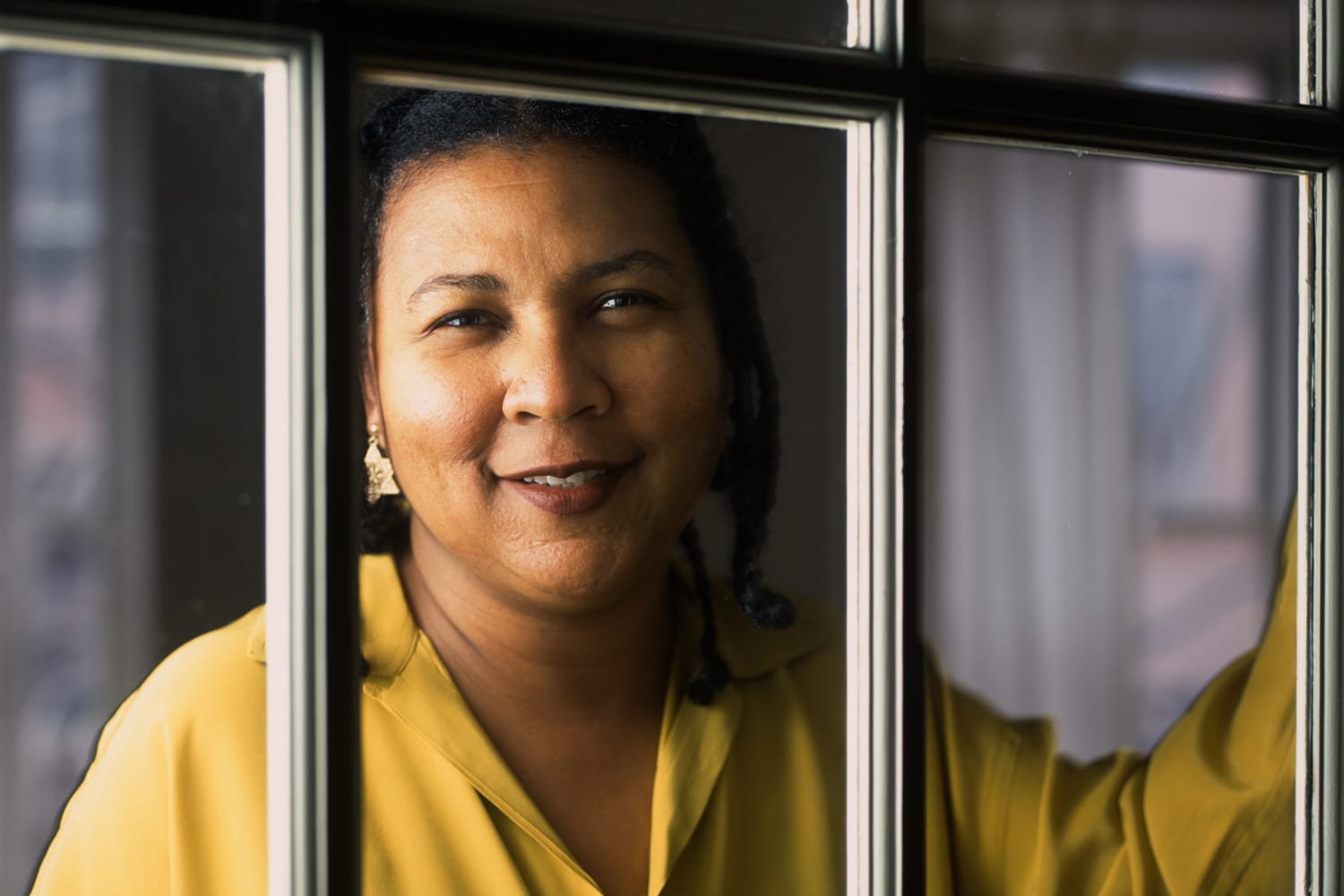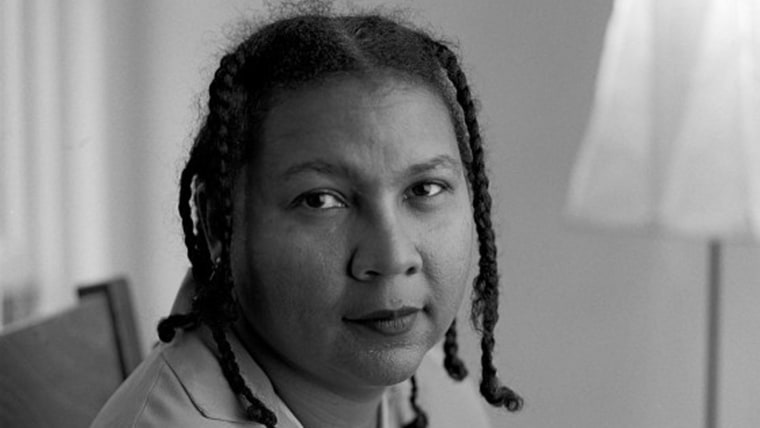“What is our lesson in this moment? What does bell hooks’ death enjoin us to do?”
These were the questions I asked myself as I walked circles around the Stanford University Bookstore on Wednesday, just hours after reading of hooks’ passing, at the age of 69, from end-stage renal failure. I felt the air in an attempt to sense the memory of her presence — she, Gloria Jean Watkins, completed her undergraduate degree in English literature at Stanford in 1974.
After my second circumambulation, I walked into the bookstore to see if there were any of her more than 30 books available. There were none.
Apparently, there was one single copy of “All About Love.” But, as if to add insult to the enormity of her loss, neither the bookseller nor I could find it.
I asked a bookseller for assistance. Apparently, there was one single copy of “All About Love.” But, as if to add insult to the enormity of her loss, neither the bookseller nor I could find it.
hooks’ world-changing books on feminism, to me, partner in kind with her world-building books on love. In classic texts like “ain’t i a woman” (1981), “Feminist Theory: From Margin to Center” (1984), “Sisters of the Yam” (1993), and “Feminism Is for Everybody” (2000), hooks not only made feminism accessible to all people but did so without compromising her insight and methodical exposure of the limitations of feminism. For hooks, reforming society’s system and institutions would not eradicate racism and classism. And this often meant interrogating some long-cherished feminist ideals, like equality, and how white feminism reinforces white supremacy by seeking to attain the same rights and privileges of white men. In “Feminist Theory: From Margin to Center,’ for example, she wrote: “Since men are not equals in [a] white supremacist, capitalist, patriarchal class structure, which men do women want to be equal to? Do women share a common vision of what equality means?”
In these books, hooks inspires us to transform our consciousness. Like other Black feminists, including Patricia Hill Collins, hooks emphasized the importance of Black women’s self-determination as a kind of freedom practice. “Black self-determination,” she explained in “Killing Rage: Ending Racism” (1995), is a way for “African Americans, across class, [to] create radical liberatory subjectivity even as we continue to live within a white supremacist capitalist patriarchal society.” Echoing the sentiments of writers like Audre Lorde, she asserted the need to “create the conditions under which we live lives of sustained well-being” available for everyone. This creation, specifically this “Black self-determination, is that process by which we learn to radicalize our thinking and habits of being in ways that enhance the quality of our lives despite racist domination.”
Exposing the strictures of the dynamic and intersecting systems of domination — what she often referred to as the “imperialist white supremacist capitalist patriarchy” — was only the start of her vision, not the endgame.
Hers was a world-building mission — reflective of her cherished role as a teacher and mentor — guiding such books as “Teaching to Transgress” (1994), “Outlaw Culture” (1940), “Communion: The Female Search for Love” (2002) and “All About Love: New Visions” (2020). This mission to achieve a cultural transformation demands that each of us become aware of each other and take responsibility for our actions and the choices we make. For feminists to do this, hooks challenged white women who “abdicate responsibility for their role in the maintenance and perpetuation of sexism, racism, and classism, which they [do] by insisting that only men were the enemy. They did not acknowledge and confront the enemy within.”
She added, “women must learn to accept responsibility for fighting oppressions that may not directly affect us as individuals … When we show our concern for the collective, we strengthen our solidarity.”
And this is why love figured so integrally into hooks’ world-building. Love is a practice, actions that we have a choice of willing to create communities based on values of dignity, belonging, justice and joy. Social movements, like the Black civil rights movement, that transform society are “rooted in a love ethic,” she wrote in “Love as the Practice of Freedom,” in “Outlaw Culture.”
Love is an ethical choice and the antidote to systems of oppressions. “A culture of domination is anti-love,” hooks explained. “It requires violence to sustain itself. To choose to love is to go against the prevailing values of the culture.”
But to choose love is also to practice freedom, because it requires an awareness that all our freedoms are interconnected:
“Awareness is central to the process of love as the practice of freedom. Whenever those of us who are members of exploited and oppressed groups dare to critically interrogate our locations, the identities and allegiances that inform how we live our lives, we begin the process of decolonization. If we discover in ourselves self-hatred, low self-esteem, or internalized white supremacist thinking and we face it, we can begin to heal.”
This understanding of freedom evokes a tradition of feminist thinkers and activists who understood that, as Audre Lorde said, “I am not free while any woman is unfree, even when her shackles are very different from my own.” It is what Simone de Beauvoir called a “genuine freedom.” World-building is not a solitary endeavor, contrary to the imperialist notion of American rugged individualism. We depend on one another — we depend on the body that nurtures us and bears us; we depend on teachers, parents and mentors to educate and guide us through our lives; and, as the Covid-19 pandemic has shown us, we depend on health care workers to save our lives. We depend on politicians to enact laws to improve our infrastructure that secures our bridges and provides us clean water. We depend, that is, on the services of others — despite the fact that our society largely refuses to acknowledge (and compensate) as such.
And this is the enjoinder of bell hooks’ passing. Just scrolling through the hundreds of tweets and posts on social media quoting this Black feminist north star, one can see how many of us were affected by her words. Here is our call to action:
“The moment we choose to love we begin to move against domination, against oppression. The moment we choose to love we begin to move towards freedom, to act in ways that liberate ourselves and others. That action is the testimony of love as the practice of freedom.”
Source: | This article originally belongs to Nbcnews.com









